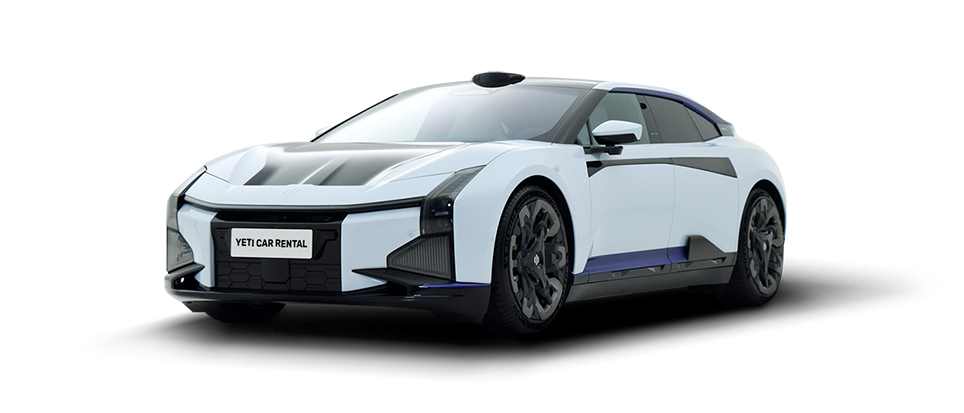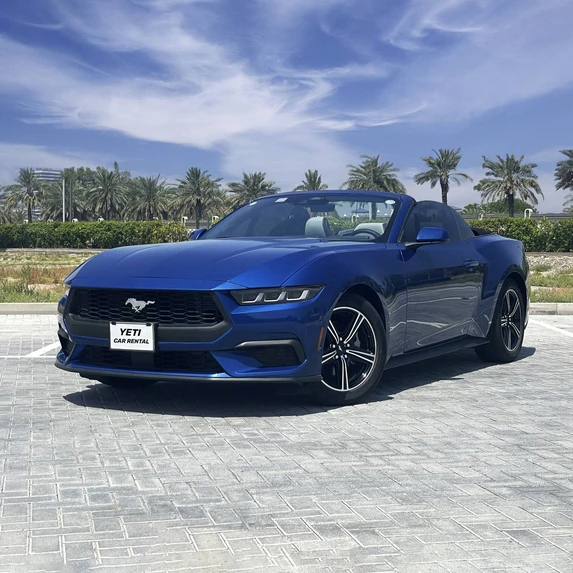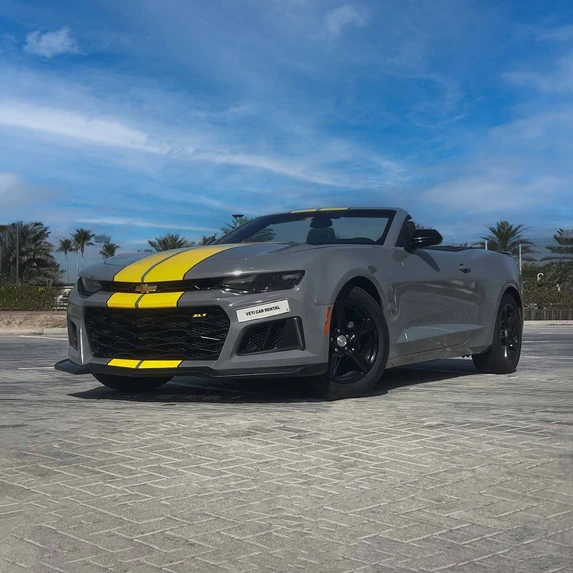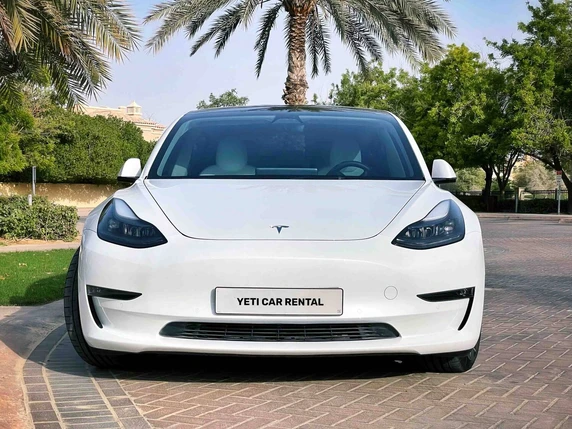Guide to Renting a Car in Dubai
Dubai is a city that captivates with its skyscrapers, luxury hotels, and wide opportunities for leisure. To fully enjoy everything this amazing corner of the world has to offer, many tourists and locals choose car rental services. It’s not just a convenience; it’s the freedom to plan your time, the ability to explore the city and its surroundings without being tied to public transport schedules or waiting for a taxi. Renting a car gives you the chance to experience the atmosphere of Dubai, visit the most hidden corners, see everything with your own eyes, and take an unforgettable trip along picturesque roads.
Car rental is the optimal choice for people seeking comfort and who cherish their independence. It’s a great alternative to public transport, especially if you want to create your own itinerary, plan to visit several places throughout the day, or are traveling with family or a large group. No more adjusting to bus schedules or wasting time waiting for taxis. You decide where and when to go. Renting a car allows you to explore not only Dubai itself but also neighboring emirates, like Abu Dhabi, opening up new horizons and opportunities for unforgettable experiences.
Before embarking on this exciting journey, it’s important to study all the nuances of the rental process. YETI Car Rental provides assistance in choosing and consulting on all car rental conditions. We offer vehicles of various classes, from economical sedans to luxurious SUVs and premium cars, to meet your needs and preferences. We strive to make the rental process as simple and clear as possible so you can enjoy your trip without unnecessary worries. At the same time, we pay special attention to the safety and comfort of our clients, offering only reliable and tested vehicles. With our services, your travels around Dubai will be unforgettable and comfortable.

Requirements and Documents
To rent a car in Dubai, you must meet certain requirements and provide specific documents. This is a standard procedure that ensures safety and compliance with the law. Let’s look at the main aspects of this matter.
Valid Driver’s License
Before renting a car in the UAE, the first thing to do is check your driver’s license. You cannot rent a car without it. The rules vary slightly depending on your nationality. If you are a tourist from a country whose national license is not recognized in the Emirates, you will need an international driver’s license. Essentially, this is a multilingual translation of your home license that confirms your right to drive abroad. It is issued based on your national identification.
Citizens of certain European and Asian countries are luckier—they only need their national licenses. This includes: Australia, Austria, Albania, Belgium, Bulgaria, the United Kingdom, Hungary, Germany, Hong Kong, Greece, Denmark, Ireland, Iceland, Spain, Italy, Canada, Cyprus, China, Latvia, Lithuania, Luxembourg, Malta, New Zealand, Norway, Poland, Portugal, Montenegro, Romania, Serbia, Singapore, Slovakia, Slovenia, the United States, Turkey, Ukraine, Finland, France, Montenegro, Switzerland, Sweden, Estonia, South Africa, South Korea, and Japan. If your country is on this list, an international driver’s license is not required.
UAE residents need local licenses that are valid for at least six months. And last but not least: make sure that your driver’s license is valid for the entire rental period.

Age Restrictions
As a rule, there is a minimum age requirement for renting a car in Dubai. This is a standard requirement set by most rental companies. Usually, the minimum age for renting a car is 21 years. However, sometimes companies impose stricter age restrictions for renting certain classes of vehicles, such as luxury or sports models. In addition to age, driving experience may also be considered. Some companies require drivers to have at least one year of driving experience.
Before renting a car, it is advisable to check with the chosen company about all age restrictions and driving experience requirements.
Passport and Visa
To rent a car, you will need documents that confirm your identity. The main document is your passport. Check its validity—it must cover the entire rental period. If you are not from a country whose citizens can enter the UAE without a visa, you will also need an entry permit. Moreover, the visa must be valid for the entire duration of your trip. UAE residents are required to show an Emirates ID instead of a visa.
Another important point: all documents must be in good condition, without damage.

Credit Card and Deposit
Almost everywhere, a credit card will be required when renting a car. This is standard practice—companies insure themselves to ensure payment for the rental and to cover unforeseen expenses. Here’s what you need to know about the credit card and deposit:
Almost all rental companies require a credit card to block a deposit and charge the rental fee. Check the expiration date of the card and ensure that there are sufficient funds to cover both the rental and the deposit. Otherwise, you will not be given the car.
The deposit is the amount that is temporarily frozen on the credit card. Think of it as a security deposit. It is needed in case the renter damages the car in an accident, incurs other damages, receives a fine for violating traffic rules, or other unforeseen expenses occur. The amount that will be frozen depends on the type of car and the specific company’s rules.
If you do not have a credit card, some rental companies may offer other options, such as renting without a deposit or the possibility of leaving a cash deposit. But be aware that in such cases, there may be additional conditions or restrictions, such as a higher rental cost or a limited selection of vehicles.
In any case, before renting a car, carefully review the rental company’s terms—how the deposit is made and how it is returned. Don’t hesitate to ask questions—it’s better to clarify everything in advance to avoid surprises later.
Insurance
When renting a car, it is essential to think about insurance—it is your shield against unforeseen expenses. In case of an accident or damage to the vehicle, insurance will protect your wallet from significant blows.
Rental companies typically include basic insurance in the rental price. It covers the main risks but often has limitations. To feel more secure behind the wheel, it’s worth considering additional insurance options. They allow you to expand coverage and reduce financial liability in the event of an insured incident.
Before signing the rental agreement and driving off in the rented vehicle, take the time to carefully review all clauses related to insurance. It is important to understand what it covers, what the deductible is (that is, how much you will have to pay out of pocket if the car is damaged), and if there are any exclusions from the insurance rules.
Additional insurance packages protect against various mishaps:
-
Tire and glass damage;
-
Scratches on the body;
-
Expand civil liability.
Remember, peace of mind while driving is priceless. Be sure to discuss all insurance details with a representative from the rental company. Don’t hesitate to ask questions to find the optimal insurance option that meets your needs and driving style.

Car Pickup and Return
Renting a car in Dubai is convenient, but to ensure everything goes smoothly, it’s important to approach the process of picking up and returning the vehicle correctly. Here are a few tips to help avoid unpleasant surprises and make your trip through the emirate more enjoyable:
-
Don’t leave your car reservation until the last minute. Book the vehicle in advance—online or by phone—to ensure that the suitable model is available at the right time and at a good price.
-
Know exactly where to pick up the car. This could be the rental company’s office, the airport, or another location convenient for you. Having a clear understanding of the meeting place will save you time and keep your nerves intact.
-
Before getting behind the wheel, inspect the car with a company representative. Pay attention to any even minor scratches, chips, or dents. Document existing defects to avoid misunderstandings and complaints later. Take photos of everything.
-
The rental agreement is not just a formality. Read it carefully before signing, paying attention to all points, including cost, mileage restrictions, insurance conditions, and responsibilities of the parties. If something is unclear, ask questions.
-
Return the car on time, according to the agreement. If you are delayed for any reason, be sure to inform the rental company. This will help avoid additional charges and maintain good relations.
-
When returning the vehicle, a company employee will inspect it. If everything is in order and there are no new damages, your deposit (if any) will be returned or the funds on the card will be released.
These simple recommendations will help you rent and return a vehicle without unnecessary hassle and with confidence in your correctness.
Mileage Limit
When planning to rent a car, be sure to pay attention to the mileage. Rental companies usually set limits on the mileage that can be driven during the rental period. Let’s break down how this works.
There are different options:
-
Full freedom – drive as much as you want, no mileage restrictions! This is the most convenient option, especially for long trips.
-
Fixed limit – rental companies allocate a certain number of kilometers for the entire rental period; if you exceed it, you will have to pay for each extra kilometer.
-
Daily limit – a specific mileage is available each day; this option is suitable if you plan short trips over several days.
Before signing the agreement, carefully review the rental terms and see what mileage limit is set for the chosen vehicle. It’s best to estimate in advance how many kilometers you plan to drive to select the optimal option and avoid additional costs. If long trips are planned, choose the option with unlimited mileage. Don’t forget to ask how much each “extra” kilometer over the limit costs—this information should be specified in the contract.
Payment Methods for Car Rental
The payment question is one of the first you need to resolve when renting a car in Dubai. There are several options, and the choice depends both on the specific rental company’s rules and your capabilities.
Most often, payments are made by credit card (Visa or Mastercard). In this case, not only the rental cost is charged from the card, but a certain amount is also blocked as a deposit.
Not all companies accept debit cards, and be prepared for the fact that the deposit may be significantly higher.
Cash payments are also possible, but typically this involves a higher deposit and is not available at all rental locations. It’s best to clarify this point in advance.
Some rental companies offer online payment through various payment systems—this is convenient and quick. Sometimes other options, such as bank transfers, may be possible, but this is more of an exception.
Before paying for the rental, pay attention to several important points: what commission the rental company charges for each payment method, the amount of the deposit, and when it will be returned. Carefully review the rental terms to avoid unpleasant surprises later.
Traffic Rules and Fines
If you plan to rent a car in Dubai, keep in mind that local traffic rules have their own peculiarities, which are better to know in advance. Ignorance, unfortunately, will not save you from fines.
Let’s go through the main points:
-
Speed. Dubai strictly monitors compliance with speed limits. There are radars and cameras everywhere, so it’s better not to take risks and keep your speed within the permitted limits. Exceeding the speed limit is one of the most common violations.
-
Road signs and markings. Pay attention to road signs. They will indicate directions, warn of restrictions, and help you navigate the road.
-
Seat belts. Everyone must wear seat belts—both the driver and passengers, in both front and rear seats.
-
Children in the car. If you are traveling with children, ensure you have suitable child seats based on the child’s age and weight. This is not just a rule, but a guarantee of the little ones' safety.
-
Drinking and driving. Do not even think about getting behind the wheel after consuming alcohol. This is absolutely unacceptable and fraught with serious consequences. The UAE treats violators of this requirement quite strictly.
-
Road conditions in Dubai may differ from what you are used to. Be attentive, adapt to the local driving style, and consider the behavior of other road users.

Fine Notification
Violating traffic rules in Dubai results in a fine that must be paid promptly to avoid additional troubles and penalties. Don’t procrastinate on payment—it can lead to serious consequences.
After a fine is issued, you will receive a notification—either by mail to your address or electronically. The notification will detail the amount of the fine, a description of the violation, and available payment methods. Be sure to review this information and pay the fine by the specified deadline.
How to Check for Fines
You can check for fines issued by the Dubai traffic police in several convenient ways to always stay informed of your obligations and avoid unpleasant surprises.
-
Online. One of the quickest and easiest ways is to check through the official website of the Dubai traffic police. You will need to enter either your driver’s license number or the vehicle registration number. The system will automatically provide information on any unpaid fines, along with details of each violation, including the date, time, and location of the offense.
-
In the app. The Dubai traffic police offer a convenient mobile app available for download on smartphones running iOS and Android. The app allows you to not only check for fines but also stay updated on the latest traffic news and pay fines directly through it, using secure payment gateways.
-
At the traffic police office. If you prefer personal contact, you can always visit any of the Dubai traffic police offices. You will need to bring your ID or passport, as well as vehicle documents if you are checking fines related to it. Traffic police staff will help you obtain all the necessary information and provide advice on fines and traffic rules if needed.
Regularly check for fines to avoid payment delays. Late payment can lead to additional fines and other sanctions, including vehicle immobilization or suspension of your driver’s license. It is recommended to check for fines at least once a month, especially if you frequently use a car or travel around Dubai.
How to Pay a Fine
You can pay a fine issued by the Dubai traffic police in several convenient ways:
-
Online. The fastest and most modern way is to pay through the official website of the Dubai traffic police. You will need internet access and a valid credit card that supports international payments. After entering the fine number and card details, the system will provide a payment confirmation, which is recommended to save in electronic form or print. There are also mobile apps from the traffic police that allow you to pay fines from mobile devices anytime and anywhere.
-
At the bank. A traditional and time-tested method is to pay at any bank that collaborates with the Dubai traffic police. You will need to provide the fine number, which can be found in the notification or obtained through online services. The bank employee will process the payment and issue a receipt, which you should keep as it confirms the payment. Be aware of any fees that banks may charge for this service.
-
At the post office. For those who prefer to pay in cash, fines can be settled at certain post offices in Dubai. The procedure is similar to paying at a bank: you will need to provide the fine number. Check in advance whether a specific post office accepts fine payments to avoid unnecessary trips.
Regardless of the payment method chosen, it is important to keep the receipt of the fine payment. This document confirms that you have fulfilled your obligations to the traffic police.

Parking in Dubai
Living in Dubai and using a rental car means constantly dealing with parking issues. The city offers various options, and understanding them can sometimes be complicated. Some parking is paid, some is free, and payment methods can vary—from parking meters and SMS to special apps. In general, before renting a car, it’s worth studying the conditions to avoid fines and enjoy your trip peacefully.
Parking Zones in Dubai
Dubai has an extensive system of parking zones, classified by color, cost, and purpose. This allows local authorities to regulate traffic and make parking spaces in busy areas of the city accessible.
The vast majority of parking spaces in Dubai require payment. The cost of parking varies depending on the specific zone and time of day, with the highest prices typically observed in central areas and during peak hours. You can pay for parking via parking meters, mobile apps (such as RTA Dubai Parking), or SMS messages. It is advisable to carefully read the instructions on parking meters or in apps to avoid fines.
Free parking spaces, while less common, are still available in some areas. They are most often found in residential complexes, near shopping centers, in public parks, and on the outskirts of the city. However, keep in mind that even in free parking areas, there may be time restrictions. For example, near residential buildings, free parking is often allowed only at certain times during the night. Therefore, pay attention to signs and markings to avoid breaking the rules.
How to Pay for Parking in Dubai
There are several ways to pay for parking in Dubai:
SMS Payment. This is the most common and accessible option. You just need to have a mobile phone and an active SIM card. You need to send an SMS to a special number, which is usually indicated on parking signs. In the text of the message, you specify the parking zone number where your vehicle is parked, as well as the vehicle number. The parking fee will be automatically deducted from your mobile phone balance or added to your service bill.
Mobile Application. Such applications are usually developed by Dubai's transport authorities or private companies offering parking services. After installing the app, you need to enter your vehicle number, select the parking zone, and pay for parking using saved card details or other available payment methods. The advantages of this method include the ability to extend parking time remotely and receive notifications about the parking expiration.
Parking Meters. In some areas, especially near shopping centers and public places, parking meters are installed. They accept payment in cash, credit cards, or prepaid cards. To make a payment, you need to enter your vehicle number, select the desired parking time, and pay according to the specified rates. After payment, the parking meter will issue a receipt, which should be displayed prominently under the windshield of the vehicle.
Nol Cards. These are universal transport cards suitable for paying for various types of public transport in Dubai, including the metro, bus, and tram. They are also accepted for parking payments in some zones, especially near transport hubs. Just tap the card on the reader at the parking facility to make a payment.
Always keep the parking payment receipt, regardless of the payment method chosen. It confirms that you have paid for parking and may be required in case of any disputes or inspections by regulatory authorities.
Toll Roads
In Dubai, to save time on the road, you can use the network of toll roads. The electronic system responsible for this is called Salik.
What is Salik?
To make the roads freer and reduce congestion, Dubai has implemented an electronic toll payment system called Salik. How does it work? A small electronic sticker—an RFID tag Salik—is attached to your vehicle's windshield. When you pass under special frames on the toll road, the system automatically reads the information from the tag and deducts 4 dirhams from your Salik account. Each passage is recorded, so you can always check your trip history and account balance on the Salik website or through a convenient mobile app.
Recharging your account is also easy: you can do it online, through the app, at payment terminals, or at Salik offices. If you rent a car, the responsibility for toll payments lies with you. Therefore, keep an eye on your Salik account balance to avoid fines.
Gas Stations in Dubai
Refueling in Dubai is a piece of cake! You don't have to worry; gasoline and diesel are always available here. At most gas stations, you control the process: choose the fuel you need, refuel, and pay—it's all smooth sailing. If you prefer someone to do it for you, there are gas stations that offer this service as well. You can pay in cash, by card, or with a special fuel card—whichever is more convenient for you. Just remember to check what fuel the car manufacturer and rental company recommend.

Conclusion
Renting a car in Dubai is a great opportunity for comfortable and independent travel around this amazing city. By knowing all the nuances and requirements, you can avoid unforeseen situations and fully enjoy your trip.
To utilize the service, all you need is a valid driver’s license, passport, and visa (if required). Carefully study the rental conditions, including costs, mileage limits, and insurance coverage. Follow traffic rules to avoid fines and ensure safe travel throughout the emirate.
YETI Car Rental will assist you in selecting the right vehicle model and provide all the necessary information regarding the rental and long term car leasing in Dubai and Abu Dhabi. We strive to simplify the rental process for guests and residents of the UAE. We wish you a pleasant journey and vibrant impressions from your trip around Dubai!
Suggested Cars for Rent:
Geely
- Engine: 1.5L Turbo
- Leather Seat
- 360 Сamera
- Rear View Camera
Chevrolet
- Engine: 1.5L
- Rear View Camera
- Cruise control
- Sun Roof
GAC
- Engine: 1.5L
- Rear View Camera
- Cruise control
- Wireless Charger
MG
- Engine: 1.5L
- Leather Seat
- Rear View Camera
- Cruise control



